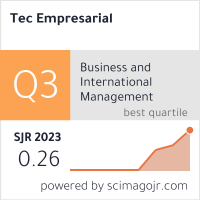THE ROLE OF EMOTIONAL INTELLIGENCE IN LEADERSHIP MANAGEMENT
Abstract
Every organization's core is said to be its leadership, which is the process of guiding a group of people or followers. The leader must be able to feel both the pulse of the group and of themselves in order to elicit greater performance from the workforce and to meet corporate goals. This study examined how emotional intelligence affects a leader's effectiveness. The primary aim of the research was to investigate the correlation between emotional intelligence and the effectiveness of leadership. 75 managers who have at least five years of experience in their existing role were chosen for this purpose from various IT firms of Pune and Hyderabad. To gather the necessary data, questionnaires and interviews were conducted. Two theories were put out in this investigation. The first theory held that leadership effectiveness increases with emotional intelligence. The overall acceptance rate was 0.68. The second hypothesis claimed that female leaders exhibit higher degrees of emotional intelligence and effective leadership. The rejection rate was 0.23. According to the study, there is not a clear connection between demographic variables and emotional intelligence.






